1Dojeon’s Descent and Birth
- The Descent and Birth of Dojeon
On the 30th day of the 11th lunar month of the Jeongsa Year (1917), Dojeon was born in Banggok Village, Jangyeon Township, Goesan County, North Chungcheong Province. He belonged to the Juksan Park family clan, and his birth name was Han-Gyeong. His courtesy name was Gyeong-Ho, and his honorific name was Wudang. His father’s name was Yong-Seon, and his mother, a descendant of the Gyeongju Kims, was named Won. Banggok-ri, the birth village of Dojeon, is situated to the north of Mount Bakdal, with Mount Juwol located to the north of Mount Bakdal. Shinseon Peak is located to the east, while Mount Seongbul is situated to the west. To the south of Mount Bakdal are Mount Gunja and Mount Chilbo. The configuration of these surrounding mountains resembles protective guards forming a defensive barrier around Mount Bakdal. Dojeon was born in the Jeongsa Year (1917), which coincided with the year when Doju realized the Daesoon Truth of Sangje and attained the Dao. The 30th day of the 11th lunar month, which corresponds to Dojeon’s birthday, holds significance as it represents the Dao. The 30th day symbolizes a complete month, alluding to the idea of a perfectly completed year of 12 months when added to his birth month.
- Early Life and Time Spent as an Educator
In the year that Dojeon turned 21, he shifted his focus towards education and began teaching at Jindae Private School located in Gwangjin Village, Jangyeon Township, Goesan County, North Chungcheong Province. He dedicated two years (1937-1938) to teaching students there before relocating to Sinheung Village School in Yuha Village, Goesan County, where he continued his teaching career from 1939 to 1940.
During that time, the Japanese imperialists, who initiated the Second Sino-Japanese War in 1937, enforced the ‘National Mobilization Order’ in Joseon under Japanese colonial rule and implemented the Third Joseon Educational Ordinance in 1938, which forbade Korean language education. Consequently, when the private school, Shinheung Village School, was forced to close in 1941, Dojeon decided to depart for Fengtian Province in Manchuria. - Military Conscription as a Laborer and the Ukishima Maru Shipwreck
During the final phase of the Pacific War (1941-1945), Japanese imperial forces shifted their focus towards conscribing Koreans as forced laborers under the ‘National Mobilization Act.’ In 1944, Dojeon, who had returned from Fengtian Province, Manchuria, willingly accepted conscription in place of his brother. He embarked on a journey from the port of Busan in Korea to the port of Shimonoseki in Japan. From there, Dojeon was transported by train to a labor house located within a naval base near Kamikita District, Aomori, in the northern end of Honshu. Amidst this challenging period of forced labor, Dojeon demonstrated remarkable courage by safeguarding other Koreans from unjust treatment by their Japanese supervisors. He also provided solace to his compatriots who were exhausted from arduous labor. Throughout this grueling period, Dojeon stood by their side, supporting them as they endured the hardships together.
After the collapse of the Japanese imperial forces on August 15, 1945 (the Eulwu Year), it was determined that the Koreans who had been conscribed to work in factories and mines would be repatriated to Korea. On August 22, the Ukishima Maru, which was carrying some of the conscribed Koreans, departed for Busan. However, it deviated from its intended route and tragically sank on the 24th following a mysterious explosion within the port of Maizuru in Kyoto Prefecture. The explosion, caused by the Japanese imperial forces, resulted in the loss of over 5,000 lives out of the 8,000 Koreans on board. During this incident, Dojeon miraculously survived by clinging to a floating turtle, and a month later, he returned to Banggok Village in Goesan County.
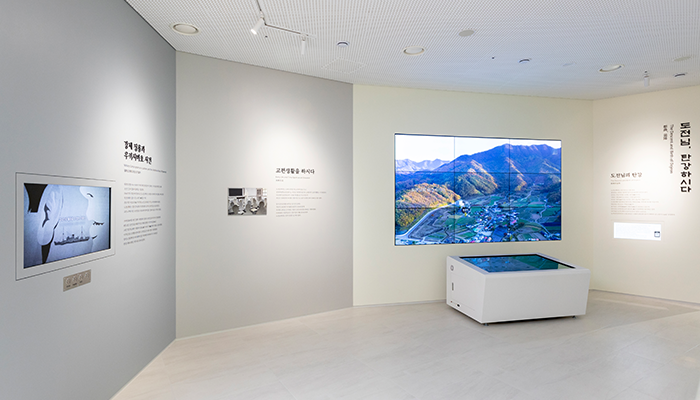
1Dojeon’s Descent and Birth
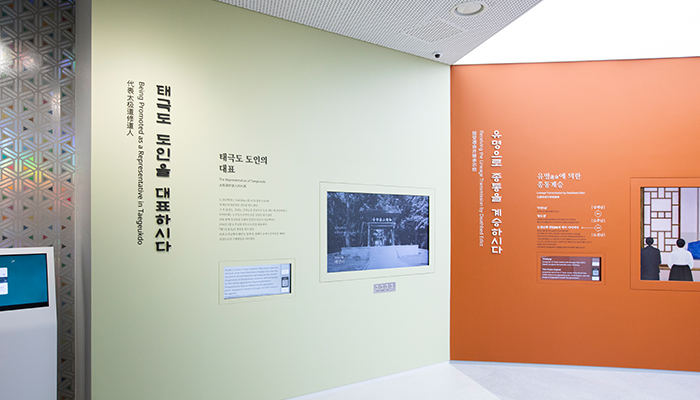
2Being Promoted as a Representative in Taegeukdo
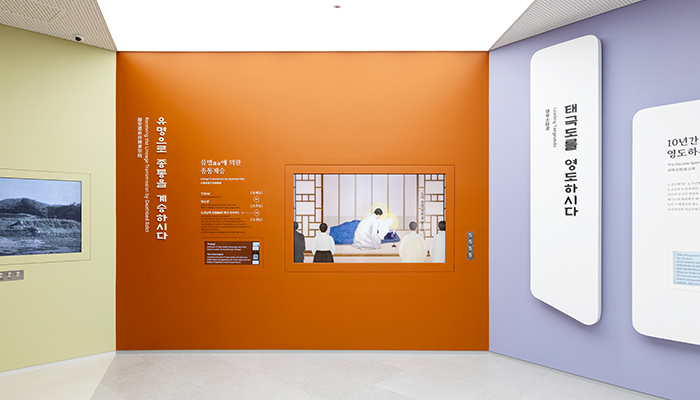
3Receiving the Lineage Transmission by Deathbed Edict
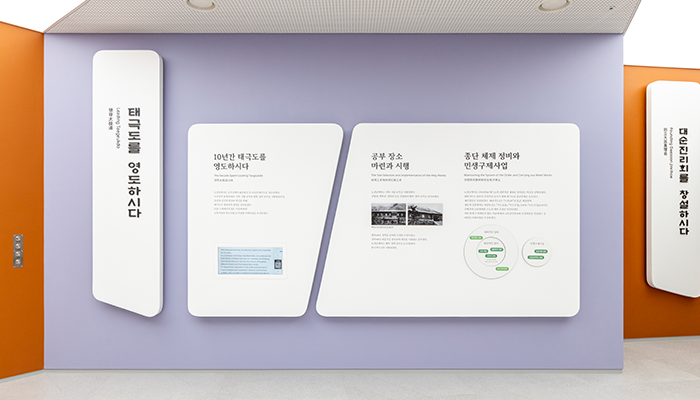
4Leading Taegeukdo
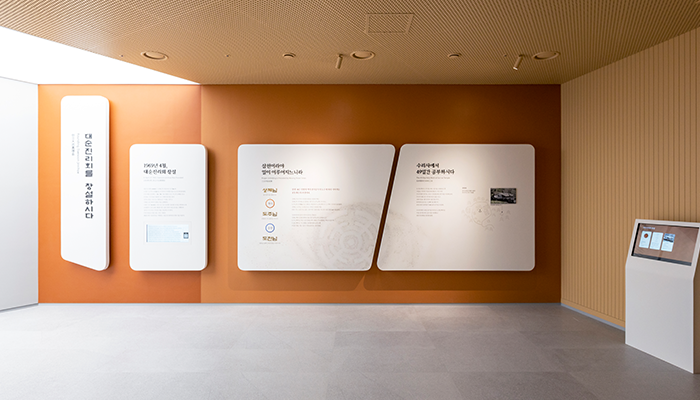
5Founding Daesoon Jinrihoe
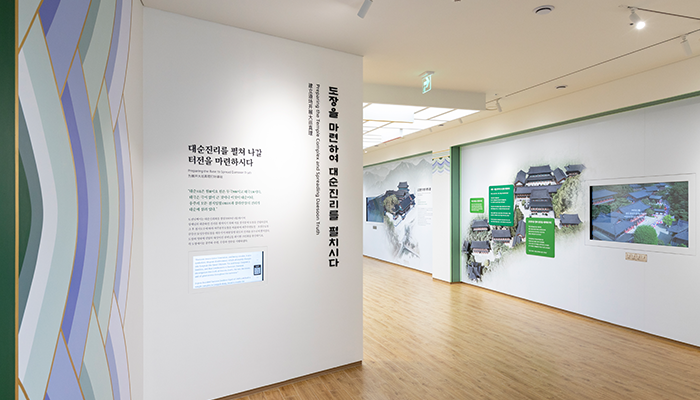
6Preparing the Temple Complexes and Spreading Daesoon Truth
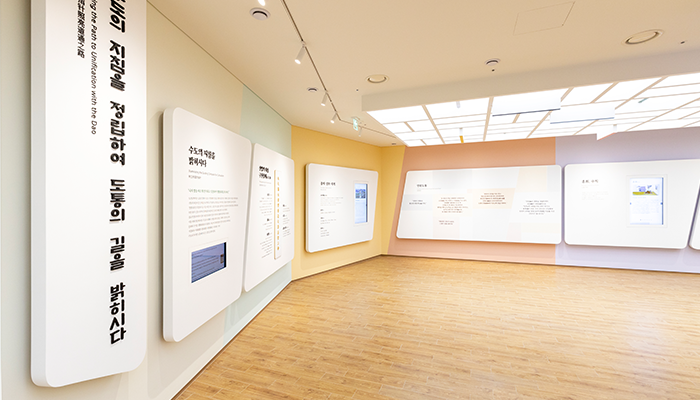
7Illuminating the Path to Unification with the Dao
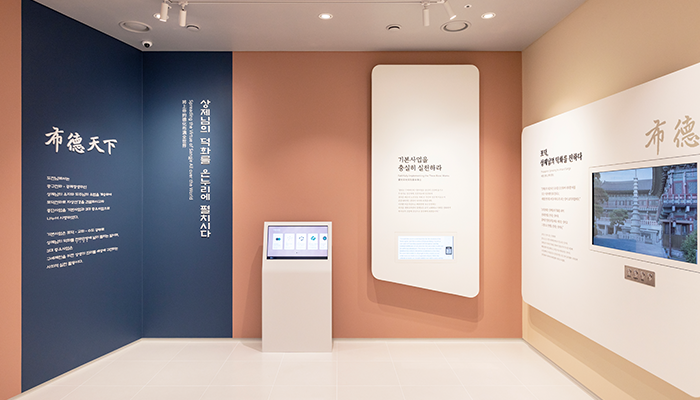
8Spreading the Virtue of Sangje all over the World
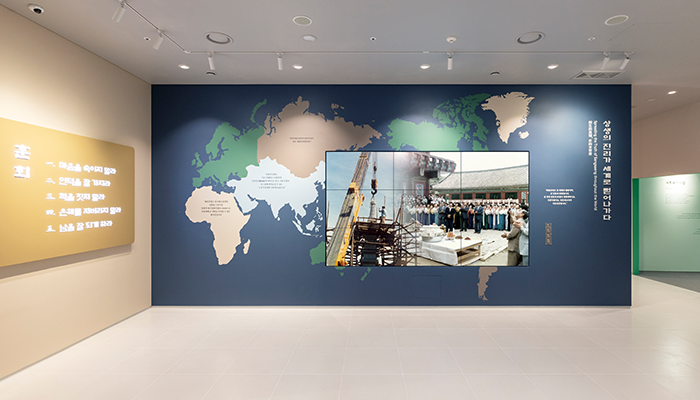
9Spreading the Truth of Sangsaeng throughout the World



